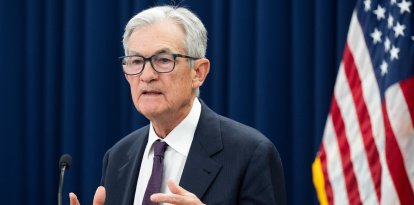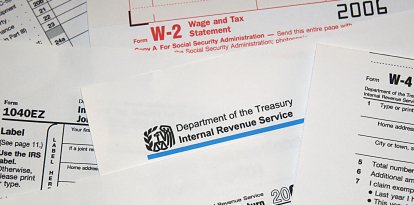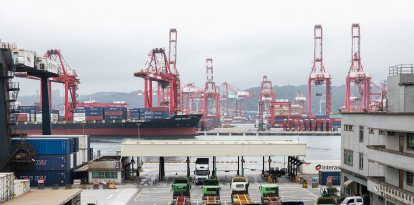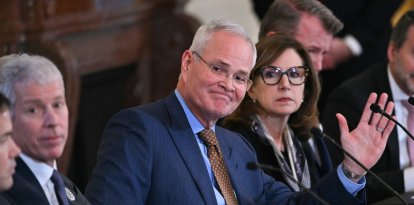Wikipedia jumps to Biden's rescue and changes its definition of 'recession'
The Biden Administration says it is the NBER who dictates when we enter a recession, but federal law says otherwise.

Jimmy Wales, creador de Wikipedia / Cordon Press.
The debate over the definition of recession is so heated that Wikipedia has been forced to block its entry on the word. The debate is so strong, that it has shifted to what decision means, and finally Wikipedia has also had to close its entry about that word in English.
But before freezing the recession entry, Wikipedia did one thing: change the usual definition (two consecutive quarters of falling activity) to another (NBER's) that better fits the political interests of the Biden Administration.
Breitbart has picked up a tweet in which its author shows how Wikipedia changed the definition:
Thus, wikipedia said, "Although national definitions vary, two consecutive quarters of falling GDP is commonly used as a working definition of recession." He changed it to "There is no consensus on the definition of recession."
Following in the White House's footsteps
The one who has sparked this debate is the White House itself. Its blog said that it could not be considered a "recession" just because GDP fell for two quarters in a row. The White House was ahead of the second quarter data, which is now known, confirming that the economy has fallen for two quarters in a row: recession.
Bad economic news is piling up for the Biden Administration. The situation is deteriorating month by month. And he does not want to go into the November 8 elections with the headline "Recession" in the newspapers and on television.
The federal government doesn't rely on NBER's definition
It is true that this is a widely used definition, that of two consecutive quarters of contraction in economic activity. It is frequently used by analysts and the press. But not everyone is convinced.
The 8 economists who make up the Business Cycle Committee (BCC) adopt their own definition based on less automatic but more profound considerations. They have been recruited by the private non-profit association NBER (National Bureau for Economic Research). The BCC defines recession as "a significant drop in economic activity that is widespread throughout the economy and lasts for more than a few months". A very vague definition. And, in any case, the CCB's decision on the recession is not official.
What's more, historian Phil Magness has shown that the definition the Biden Administration is now shrugging off is the one that is closest to being the official one. "I can show you," Magness says, "several examples where federal law uses the "two consecutive quarters of declining real GDP" definition", such as in the Graham-Rudman-Hollins Act of 1985.
Why it doesn't matter if there is a recession
All the debate centers on the definition of the word recession, but families do not fill their deposits, pay their mortgage or pay for their children's education with definitions. In reality, families and companies do not even need statistics to make their decisions, but market prices, interest rates, demand trends and so on. Moreover, it is part of the result of these actions that will later be reflected as statistics.
So why is so much attention being paid to the issue? Because it is an instrument for politicians. When the country is officially in recession, the government is obliged to adopt a set of measures to manage the situation, or to avoid the worst effects of the economic crisis.
Why recession matters
But, beyond the definition, the reality is that the economy is cyclical, and a period of economic boom is followed by a period of what used to be called crisis, then depression and now recession. And beyond politicians' worries about words, citizens care about whether or not we are entering an era of economic decline.
The James Hamilton recession index measures the probability that the country will enter a recession. According to data collected by the St. Louis Federal Reserve, that probability now stands at 40%. But it happens that every recession has a zombie-economy period: the economy is dead without knowing it. Because a recession is not declared until several months later.
According to an article in the Wall Street Journal, the recession that began in January 1980 was not declared until June. The July 1990 was not made official until April 1991. Or, to look for the most recent one, that of February 2020 was not declared until June of that year.
























